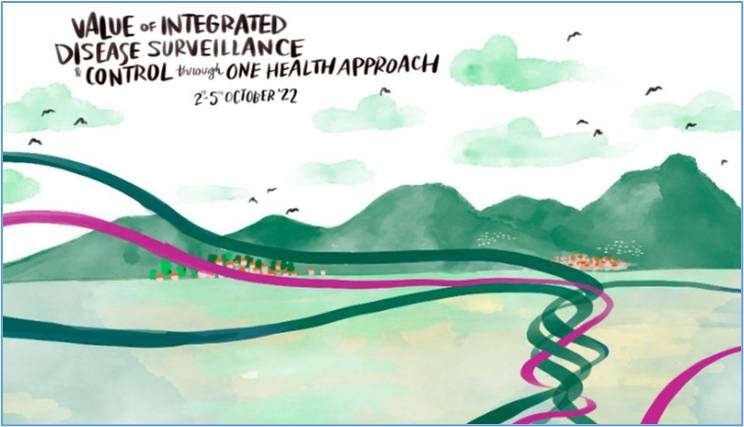|
October 2-5, 2022 Workshop / Summit
Value of Integrated Disease Surveillance and Control through a One Health Approach
|
 |
Location: Les Pensières Center for Global Health, Annecy, France.
This workshop was organized by the Huck Institutes, Penn State with funding from Gates foundation. It was led by Vivek Kapur (Penn State) and Sindura Ganapathi (Penn State and Govt. of India) together with Cheryl Stroud (One Health Commission), Gagandeep Kang (CMC Vellore, India), James Wood (Cambridge University, UK) and Peter Hudson and Robab Katani (Penn State).
The recent pandemic has brought into sharp focus the need for better integration of (human, livestock, wildlife, environmental) infectious disease surveillance and control programs and has driven considerable interest and investments. However, clarity is lacking regarding implementation strategies based on deeper understanding of the underlying systems – capturing features that should ensure system resilience and the sustained surveillance and control of zoonotic diseases. Hence, despite the widely prevailing belief that “One-Health” based approaches to disease surveillance for ensuring health security are virtuous, value propositions (alignments of incentives and disincentives) remain confused.
Led by an excellent team of expert facilitators and a visual graphic recorder, a multi-disciplinary group of 44 leading scientists, policy makers, funding agency representatives, members of multi-national organizations and business leaders participated in discussions on the value proposition and sustainability of One Health approaches for integrated infectious disease surveillance and control programs. Over a three-day period, the team addressed three fundamental questions:
- Why are One Health approaches not more widely adopted on the ground? And, what barriers are preventing these ideas from spreading beyond a few champions / early adopters?
- Why, across the globe, do One Health integrated surveillance and control programs fail or fade away when the catalyst (funding / champion / etc.) is removed? Even for cases where the need appears obvious – (eg. rabies, anthrax, brucellosis, tuberculosis, etc.) why are these initiatives not sustainably maintained?
- How, if at all, might such disease control programs be made more sustainable? What is/are the value-proposition(s) / drivers necessary and sufficient to establish sustainable integrated disease surveillance and control programs across diverse settings/regions where they are needed the most?
Important insights and some guiding principles to inform future implementations of integrated One Health disease surveillance and control programs began to emerge and are being prepared for publication and follow-up studies. Part of the challenge is that One Health processes cannot only be top-down; they must also be bottom up with stakeholders on the ground developing the value propositions
See posting about the workshop in November 2022 One Health Happenings in Blog/Commentaries Section
See Popular Media article about the Workshop:
We Collectively Have only One Health: investment to prevent and prepare for the next pandemic required enlightened self-interest in public health. By Vivek Kapur, Sindura Ganapathi, Cheryl Stroud, James Wood, Peter Hudson, Gagandeep Kang, Richard Seifman





